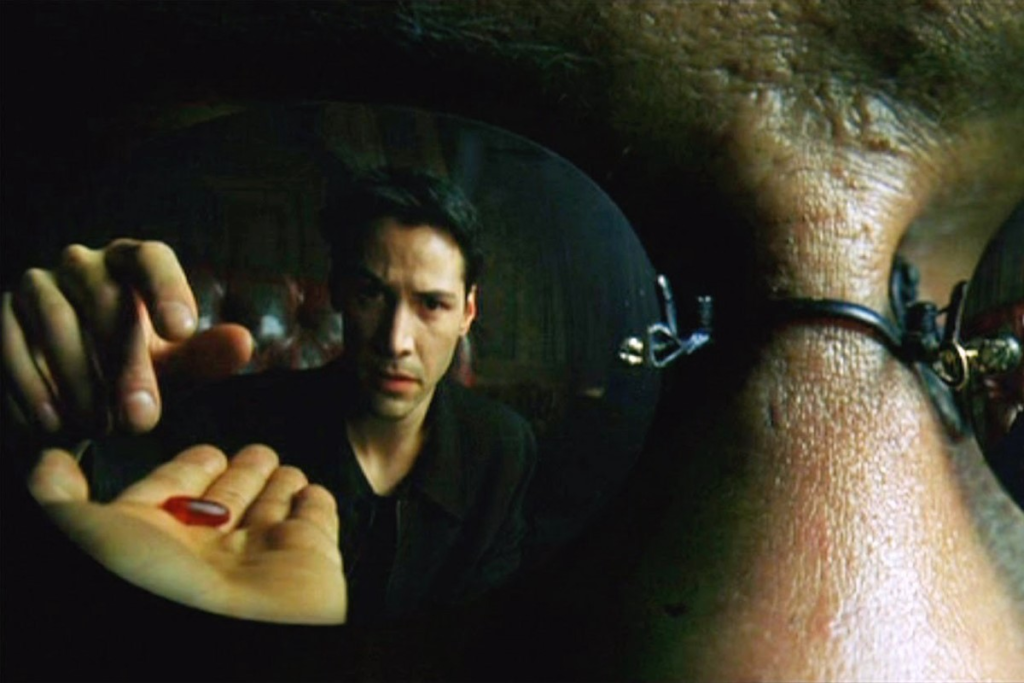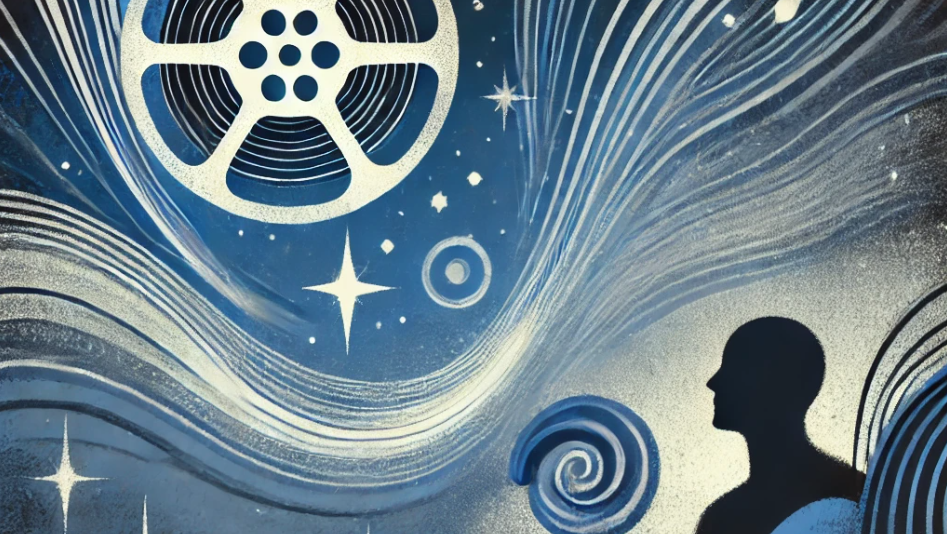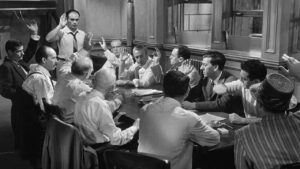Table of Contents
Introduction: Why Do We Watch Existentialist Films?
In this post, we’ll explore the best philosophy movies that delve into existentialism. These films are as much about self-reflection as they are about storytelling.
Have you ever left a movie theater feeling like your whole perspective on life had shifted? Maybe it wasn’t just the story or the visuals, but the way the film made you reflect on the choices you’ve made, the things you believe, or the nature of reality itself. That’s the magic of existentialist films—they don’t just entertain; they challenge, provoke, and inspire.
Existentialism is a philosophy rooted in the human experience, exploring life’s most profound questions:
- Why are we here?
- What gives life meaning?
- How do we live authentically in a world full of uncertainty?
These aren’t easy questions, and existentialist films don’t offer easy answers. Instead, they immerse us in stories and characters that force us to confront these questions for ourselves.
1. The Matrix (1999): The Choice Between Truth and Illusion
Directed by: The Wachowskis
The Matrix isn’t just a sci-fi blockbuster—it’s a philosophical allegory wrapped in an action-packed adventure. At its core, it’s about Neo’s awakening to the truth: the world he knows is a computer simulation designed to enslave humanity. But the story doesn’t stop there. Neo’s journey is one of self-discovery, choice, and the search for purpose in a world that feels both limitless and oppressive.
The film’s iconic red pill vs. blue pill moment captures one of existentialism’s most profound dilemmas: Do we confront uncomfortable truths, or do we choose the comfort of ignorance? Neo’s decision to take the red pill is a leap of faith into the unknown, a willingness to embrace the uncertainty of reality.
But The Matrix also asks deeper questions about control and agency. Are we as free as we think we are? Or are we, like Neo before his awakening, living in a system that defines our choices for us? These are the kinds of questions that stick with you long after the credits roll.
- Key Themes: Reality vs. illusion, freedom of choice, self-discovery.
- Philosophical Tie-In: Descartes’ skepticism in Meditations on First Philosophy and Baudrillard’s concept of simulacra, where reality and simulation become indistinguishable.
Read our in-depth review, or buy The Matrix collection.

2. The Seventh Seal (1957): Wrestling with Mortality
Directed by: Ingmar Bergman
If you could delay your death by playing a game of chess with the Grim Reaper, what would you do with the extra time? For Antonius Block, the protagonist of The Seventh Seal, the answer isn’t simple. Returning from the Crusades to find his homeland ravaged by the plague, Block confronts the silence of God and the inevitability of death.
This isn’t a story about finding answers—it’s about the search itself. Block questions whether life has meaning, whether God exists, and whether anything we do truly matters. His journey is bleak, but it’s also filled with moments of tenderness: a picnic with friends, the laughter of a child, the beauty of music. These fleeting joys remind us that even in the face of mortality, life is worth living.
What makes The Seventh Seal so timeless is its refusal to shy away from life’s darkest questions. Instead, it shows us that even without answers, the search for meaning is meaningful in itself.
- Key Themes: Mortality, faith, the search for meaning.
- Philosophical Tie-In: Kierkegaard’s “leap of faith,” Camus’ concept of embracing the absurd, and Heidegger’s idea of “being-toward-death.”
Read our in-depth review, or buy The Seventh Seal.

3. Eternal Sunshine of the Spotless Mind (2004): The Beauty of Imperfection
Directed by: Michel Gondry
What if you could erase the most painful parts of your life? Would you do it? In Eternal Sunshine of the Spotless Mind, Joel and Clementine undergo a procedure to erase all memories of their failed relationship. But as Joel relives their memories during the erasure process, he realizes he doesn’t want to let them go—even the painful ones.
The film beautifully captures how our memories, even the difficult ones, shape who we are. It asks us to consider the cost of forgetting: If we erase the bad, do we also erase the good? And without our struggles, can we truly appreciate life’s joys?
At its heart, Eternal Sunshine is about embracing life’s imperfections. It’s a poignant reminder that pain, love, and growth are intertwined—and that our experiences, both good and bad, make us who we are.
- Key Themes: Memory, identity, the value of imperfection.
- Philosophical Tie-In: Nietzsche’s eternal recurrence and existentialism’s emphasis on living authentically, even in the face of imperfection.
Read our in-depth review, or buy Eternal Sunshine of the Spotless Mind.

4. Waking Life (2001): Life as a Dream
Directed by: Richard Linklater
Have you ever felt like life itself might be a dream? Waking Life explores that idea through a series of surreal, animated conversations about free will, consciousness, and existence. The protagonist drifts through a dreamscape, encountering philosophers, artists, and everyday people who challenge his understanding of reality.
The film’s loose structure and ethereal visuals make it feel like a dream in its own right, but its philosophical depth is what makes it unforgettable. It’s a film that doesn’t provide easy answers but instead invites viewers to question everything they think they know about life.
- Key Themes: Consciousness, free will, the nature of reality.
- Philosophical Tie-In: Sartre’s idea of “bad faith,” Kierkegaard’s embrace of life’s uncertainties, and the Buddhist concept of the dreamlike nature of existence.
Buy Waking Life here.

5. No Country for Old Men (2007): The Chaos of Life
Directed by: Joel and Ethan Coen
Some films are unsettling because they refuse to play by the rules. No Country for Old Men is one of those films. Its antagonist, Anton Chigurh, doesn’t represent evil so much as chaos itself. His coin tosses to determine life or death embody the randomness of existence, forcing viewers to confront the uncomfortable truth that life is often governed by chance rather than reason.
Sheriff Bell, the film’s moral center, wrestles with the loss of order in the world around him. The film ends without closure, leaving us to grapple with its existential questions: How do we find meaning in a chaotic world? How do we face the randomness of life?
- Key Themes: Chaos, morality, randomness.
- Philosophical Tie-In: Camus’ absurdism and Nietzsche’s critique of moral absolutes.
Read our in-depth review, or buy No Country for Old Men.

Honorable Mentions: More Films to Expand Your Perspective
- Fight Club (1999): Tackles identity and consumerism with a dark, rebellious edge.
- Her (2013): Explores the nature of love and connection in a digital age.
- The Tree of Life (2011): A poetic meditation on humanity’s place in the cosmos.
- Ikiru (1952): A bureaucrat’s inspiring journey to find purpose before death.
- The Truman Show (1998): A thought-provoking exploration of freedom and authenticity.
Conclusion: Why Existentialist Films Matter
Existentialist films aren’t just stories—they’re experiences. They push us to question the nature of reality, confront life’s uncertainties, and think deeply about what it means to live authentically. Whether it’s Neo’s awakening in The Matrix, Antonius Block’s chess game with Death in The Seventh Seal, or Joel’s journey through memory in Eternal Sunshine, these films stay with us because they speak to something universal.
Take a look at our in-depth move reviews here.




